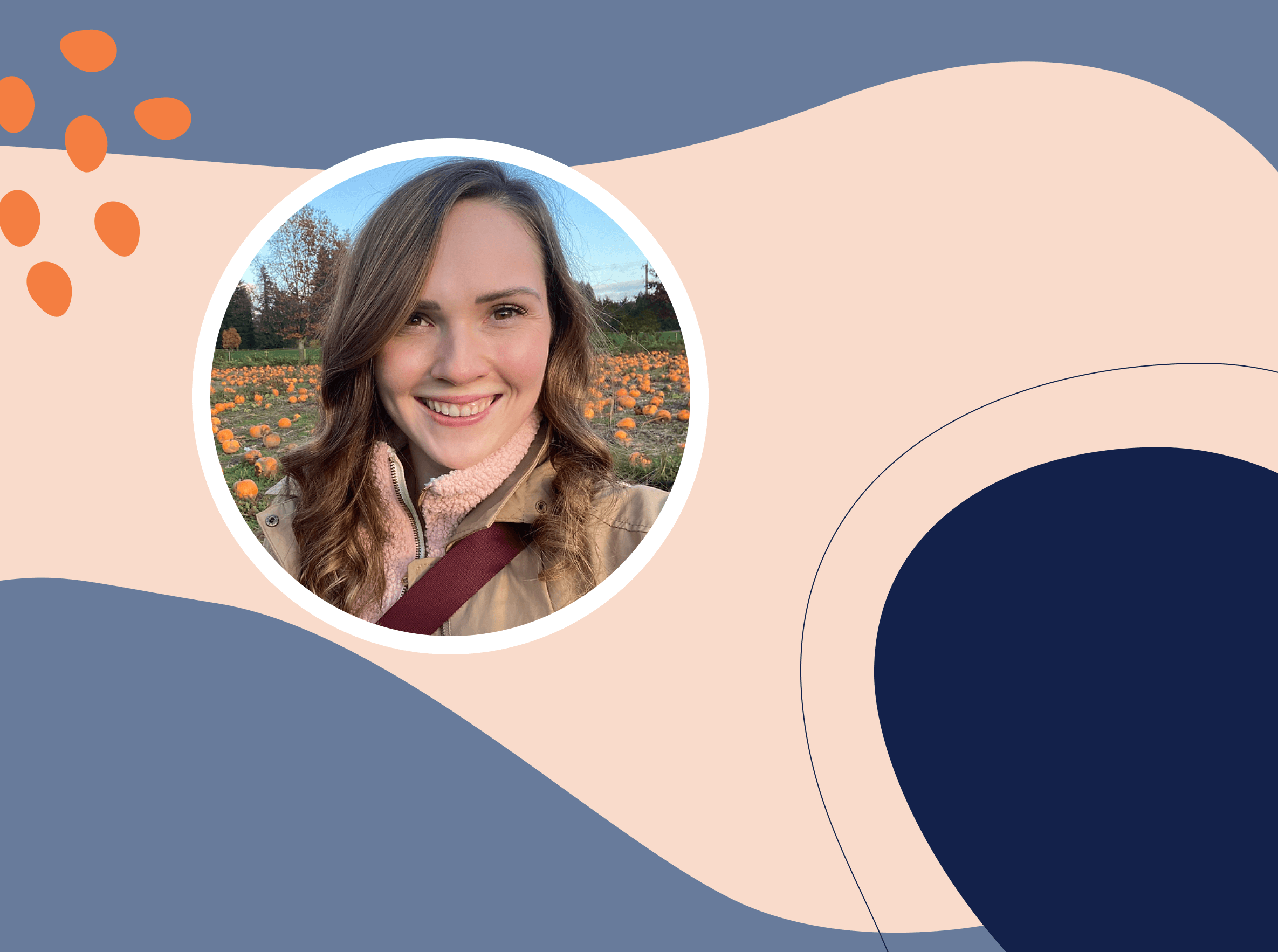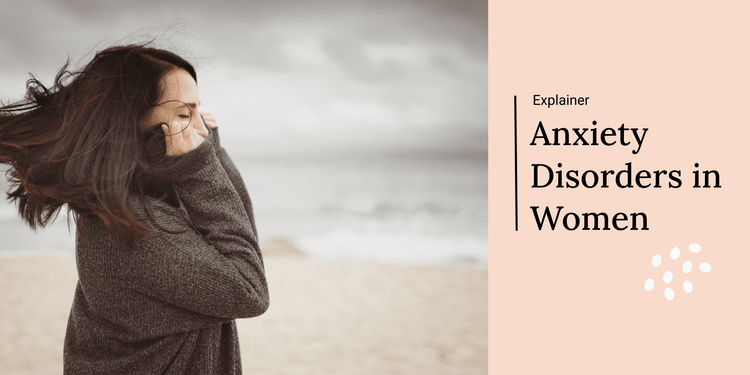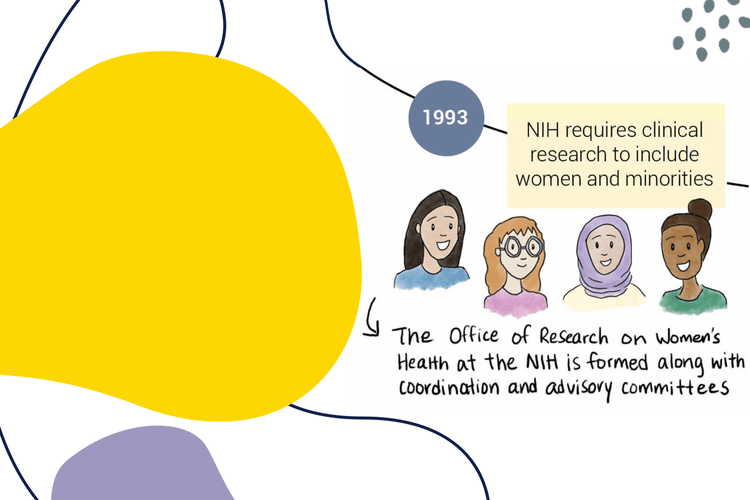
May 23, 2023, 4:00 am UTC
5 min
Created by
This medical student built a thriving Instagram community about anxiety
By day, Carly Johnston is a busy third-year medical student at the University of British Columbia, working toward becoming an obstetrician-gynecologist with a focus on perinatal mental health. Nights and weekends, she runs Healing the Anxious Mind, an Instagram account and website dedicated to anxiety education and resources.
Johnston launched the account during the pandemic, at a time when she was coming to terms with her own anxiety disorder. She was desperate to connect with others who could relate to her experience and might learn from it.
“I really wanted to build a community to help anyone experiencing anxiety feel less alone, and just to share tips that can benefit anyone at any stage of their healing journey,” she says. “I started to really dive deeper into my root causes of anxiety and I was learning so much. I felt like if I was learning a lot, others deserved to learn, too.”
"Healing the Anxious Mind" now has more than 100,000 followers worldwide, and Johnston has offered comfort, validation, and countless resources to others with anxiety. She shared her anxiety journey with wmnHealth and reflected on the need for more research and solutions for women’s mental health.
This interview has been edited for length and clarity.
Her first panic attack
I had my first panic attack three or four years ago now. All of a sudden, I felt like my whole world just stopped. I was in the middle of teaching a preparatory class for the MCAT [Medical College Admission Test], and it was a completely normal night at work. Nothing was off until I just felt this impending doom. My heart started to race. I couldn't breathe. I was really hot. My mouth was super dry. And I was like, "What is this?" And then, "I think this might be a panic attack. I think this is what this is."
High-functioning anxiety
Looking back, I was always a very high-functioning anxious person. So much of that stemmed from my perfectionism, my people-pleasing, and my very type A personality, which in medicine is a very common personality type. But I didn't really realize it was impacting my life.
For years, I experienced so many physical symptoms of anxiety. Digestive issues. I felt my heart beat really fast. I would feel short of breath. But I didn't relate these things to anxiety because it was normal for me to feel that way. And I thought everybody else was going through something very similar.
The aftermath
After my first panic attack, I thought, "Okay, well, I'll just sleep it off. And then tomorrow, I'll wake up and be totally fine." And then, I woke up the following day and felt like I was being chased by a bear. My body was still in that fight-or-flight response. I was extremely uncomfortable, but I also had a Jonas Brothers concert to get to. So that was my priority! Similar to any physical ailment, like a cold, I thought, "I gotta get rid of this. I'm not feeling my best, but I gotta get back to the 600 things I have to do."
After my first panic attack, I thought, "Okay, well, I'll just sleep it off. And then tomorrow, I'll wake up and be totally fine." And then, I woke up the following day and felt like I was being chased by a bear.
Finding help
For about two months, I had no idea what to do about my anxiety. I was pretty much panicking daily.
At that stage, I started thinking therapy might help, and then I realized how expensive it was. So I decided to start with my doctor. I had a lovely chat with my GP, who was very supportive. But she essentially ended the conversation: Do you sleep well? Do you drink too much caffeine? And do you want a prescription for an SSRI [selective serotonin reuptake inhibitor]?
I wasn't ready to start medication. Instead, I started cognitive behavioral therapy. I went weekly, I was doing the work, and then I felt like I hit an impasse. And to be honest, I couldn't afford it. Eventually, I found Anxiety Canada, which was a really great resource. It has free online programs, so I decided to try to work through my anxiety independently.
Around that time, I got accepted into medical school. I spent six or seven months just trying to get rid of my anxiety disorder. I kept thinking, "This has to go. It really has to go."
Eventually, I realized that getting rid of it wasn't the answer.
Recognizing stigma
I guess I resisted the label. I took a bunch of screening tests for anxiety, but I knew how the tests worked, and I was underplaying all my symptoms because I was in denial. I was like, "Oh, no, this can't be me. Everyone else struggles with their mental health, but I can't," especially because I had a wonderful life. So why would I struggle with mental health? I didn't realize how much stigma I held against mental health until this experience happened.
Finding acceptance
I started reading books. Lots of books. Looking back on it, I was trying to perfect anxiety healing! Like there must be an answer in one of these 300 books!
Eventually, I came across a psychotherapist named Anxiety Josh — his Instagram name — who wrote a book called Anxiety: Panicking about Panic. Frankly, it sounded like me. And he started to change the way I thought about anxiety. Anxiety wasn't something that I needed to fear. It was my body's physiological response trying to protect me.
I started to explore what healing would be like if I didn't just try to eliminate the symptoms. I started learning to sit with anxiety instead of fearing it and pushing it away. I learned to recognize that my lifestyle was an important factor [contributing to my mental health problems], but it wasn't the factor. The real answers were fixing my mindset and learning to calm my nervous system.
It wasn't an easy process. It took months, if not years, to get to a place of regulation again, trying all these things and oftentimes failing because I used to think I had to do every self-care thing possible. I truly needed to find what worked best for me.
Launching Healing the Anxious Mind
About a year and a half into my journey, in 2021, I started Healing the Anxious Mind on Instagram. Looking back on it, the one thing that made me create this account was that throughout my entire journey, I was so alone. I felt so isolated, like I was the only one experiencing this, and that this black cloud, like from Winnie the Pooh, was on me 24/7. I wanted to create a space to connect with other people and share things that I found helpful. And I hoped that if somebody didn't have access to medication, didn't have access to therapy, didn't have access to someone to talk to, the space I was creating would give them at least a little piece of support and validation.
I was looking for connection, but I never realized how powerful that connection on social media could be. I wasn't expecting 100,000 people to resonate with it. But it just kept growing, and people were interested in what I was sharing.
Resources, not professional help
Many people reach out to me asking, how do I fix this? I always respond that I'm not your healthcare professional. Here's a blog post I wrote on nervous system regulation or Anxiety Canada's resource on moving through anxiety. I try to provide somebody with a resource to help facilitate their healing journey, whatever that looks like for them.
Knowledge gaps
More research needs to examine hormonal cycles and women's mental health conditions. I also think focusing on specific time points in a woman's lifespan, including pregnancy and menopause — all these changes that many of us go through that just aren't studied enough — could be really helpful.
These days, my research is on perinatal anxiety. There's no valid perinatal screening anxiety tool even though perinatal anxiety touches 20% of all people during pregnancy and postpartum!
All these Instagram accounts are coming up because there is a need for more support beyond therapy....
Also, I'm a big supporter of medication for mental health. But we could have better conversations about how to get off medication, what happens when it ends, or what healing beyond medication looks like for people.
And, of course, overall mental health needs more resources. All these Instagram accounts are coming up because there is a need for more support beyond therapy that people can't afford.
Advice to others experiencing anxiety
My main advice, which is why I started the account, is to remember that you are not alone. I know it's incredibly difficult to see that when surrounded by people who maybe haven't experienced anxiety.
I also think it's important not to define yourself based on anxiety. Understand that it's an experience, not a defining characteristic. You are not an anxious person. You are a person experiencing anxiety or an anxious moment.
One more piece is that you matter. Your needs matter, and your health matters. It's really easy to put everyone else first, and it's really hard to put yourself first, especially if you experience all the things that I did, like people-pleasing and perfectionism. But remember that if you aren't at your best, you definitely can't provide for everyone else.
Subscribe
Get a weekly roundup of articles, inspiration, and brain health science in your inbox. Subscribe.



